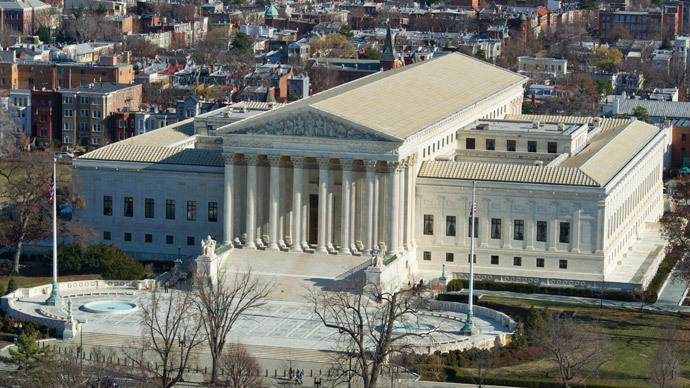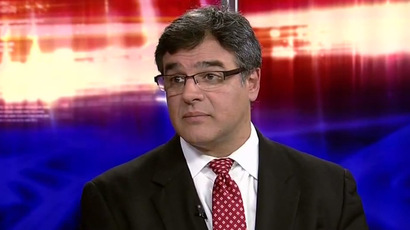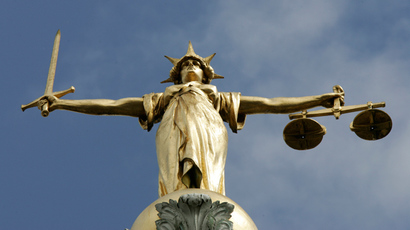Feds ask Supreme Court to reject case on reporter’s privilege to shield source

Obama administration lawyers have asked the US Supreme Court to not hear testimony from a New York Times reporter who argues that the First Amendment protects him from revealing his sources, a claim the Justice Department seems to find dubious at best.
In July 2013 a federal appeals court decided by a 2-1 margin that James Risen would be forced to reveal a source who provided information about a Central Intelligence Agency (CIA) effort to subvert the Iranian nuclear program. Risen, a Pulitzer-Prize winner and veteran of the New York Times, has asserted that he should be protected from doing so because of a legal precedent known as reporter’s privilege, which applies in a variety of situations where press freedom is perceived to be at risk.
The constitutional argument began in this case when Risen was subpoenaed to testify in the federal trial of former CIA officer Jeffrey Sterling, who was charged with illegally providing information that later appeared in Risen’s book, “State of War.” Risen has consistently refused to testify, undaunted even by the aforementioned federal appeals decision.
Politico reported Friday that the Department of Justice has formally asked the Supreme Court not to hear Risen’s appeals to the previous appeals court decision, saying that even if the Supreme Court believes journalists have a right to reporters privilege in criminal cases, Risen’s case presents a poor example.
“While the question presented does not warrant this court’s review, this case is a particularly unsuitable vehicle,” the government argued Friday.
Journalist Josh Gerstein explained that the Justice Department was once willing to proceed in the Sterling trial but now seems intent on forcing him to take the witness stand. Other options include dropping the case entirely or entering into a plea deal with Sterling, as forcing the high court’s hand could have major implications.
“If the Supreme Court does not take up Risen’s appeal, he could be held in contempt in district court and might be sent to jail or fined if he refuses to identify his sources or testify about other details of his reporting,” Gerstein wrote.
“He has said repeatedly that he will not divulge details about his sources. That could place President Barack Obama in the awkward position of presiding over the jailing of a journalist in an administration the president has vowed to make the most transparent in history.”
In the brief filed Friday, the Justice Department cited as a precedent Branzburg v. Hayes, which found no privilege for media personnel called as grand jury witnesses in certain criminal investigations. Prosecutors also claimed that, because Risen’s case concerns national security, his case is extraordinary when compared to the protections afforded to journalists who work under different laws in various states throughout the US.
“Although many states recognize a reporter’s privilege of some sort in some circumstances, no ‘consensus’ exists about who qualifies for such a privilege, what types of communications are covered, and the circumstances in which it may be invoked,” the brief said. “Importantly, none of the state laws or decisions petitioner cites addresses the uniquely federal interest in preventing the unlawful disclosure of classified national-defense information.”
Coincidentally, on the same day the Justice Department essentially asked the Supreme Court to send Risen to jail, the US State Department announced the beginning of its third annual “Free the Press” initiative, an attempt to recognize “journalists or media outlets that are censored, attacked, threatened, or otherwise oppressed because of their reporting.”














